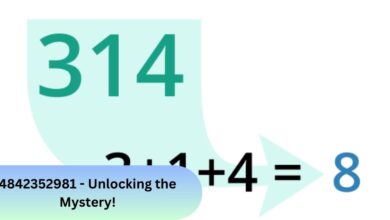If you’ve ever come across the crossword clue, “when doubled a mild reprimand,” you might have scratched your head trying to figure out what it means. At first glance, it sounds puzzling, but the answer is actually simple: the word “tut.” When doubled, “tut-tut” is used to express mild disapproval or a gentle scolding, often for something minor or trivial.
This phrase, “when doubled a mild reprimand,” has made its way into crossword puzzles and word games, becoming a tricky clue that stumps many players. However, its significance goes beyond just a puzzle. Understanding the meaning behind this phrase opens up a deeper appreciation for language, wordplay, and the subtleties of communication.
In this article, we’ll explore:
- The meaning of “when doubled a mild reprimand”
- The origin and context of this phrase
- The use of “tut-tut” and similar phrases in everyday language
- How this phrase fits into crossword puzzles
- Related terms and wordplay in puzzles
- Fun insights and variations on mild reprimands
- FAQs about “when doubled a mild reprimand”
By the end of this guide, you’ll not only understand the meaning of the phrase but also gain a broader perspective on how it is used in language and games. Let’s dive in!
What Does “When Doubled a Mild Reprimand” Mean?
The phrase “when doubled a mild reprimand” refers to the word “tut.” When you say “tut” once, it’s often a short, disapproving sound. But when you double it to “tut-tut,” it transforms into a mild reprimand, used to express disapproval or gentle criticism.
Example of Use:
- Scenario: A child accidentally spills water on the floor.
- Response: The adult might say, “Tut-tut, be careful next time!”
The phrase “tut-tut” is not meant to be harsh. It’s more of a gentle reminder to be more careful, emphasizing a mild, non-serious reprimand.
Origins of “Tut-Tut”
The origin of the phrase is believed to come from the sound people make when they disapprove of something minor. It’s similar to clicking your tongue or shaking your head as a form of non-verbal communication.
Over time, “tut” was adopted into language, and when repeated as “tut-tut,” it became a commonly recognized phrase for expressing mild disapproval.
The Role of “When Doubled a Mild Reprimand” in Crossword Puzzles
If you’re a fan of crossword puzzles, you’ve likely encountered this clue: “when doubled a mild reprimand.” As mentioned earlier, the answer to this clue is “tut.”
Why This Phrase Is Popular in Crosswords:
- Word Length: “Tut” is short, making it an ideal word for fitting into tight spaces in puzzles.
- Repetition: Crossword creators love using words that change meaning when repeated. “Tut” becomes “tut-tut” when doubled, which gives it a playful element.
- Familiar Yet Tricky: Many people are familiar with the expression “tut-tut,” but the clue can still be tricky, especially for newer puzzle solvers.
Puzzles often use simple words in creative ways, and this clue plays on that simplicity. It might seem straightforward once you know the answer, but until then, it can be a head-scratcher.
Expanding on the Phrase: Other Examples of Mild Reprimands
While “tut-tut” is a common example, there are several other phrases used to express mild reprimands. Some of these may also appear in crossword puzzles or daily conversation.
1. Tsk-Tsk
This sound is made by clicking your tongue against the roof of your mouth. It’s similar to “tut-tut” in that it’s used to show disapproval or disappointment.
- Example: “Tsk-tsk, you really should know better than that.”
2. Shame on You
Though slightly stronger than “tut-tut,” this phrase is still used for minor offenses, often in a joking or light-hearted manner.
- Example: “You ate the last cookie? Shame on you!”
3. Now, Now
This phrase is often used to calm someone down or lightly chide them for overreacting or behaving improperly.
- Example: “Now, now, there’s no need to get upset over a small mistake.”
4. My, My
This phrase expresses mild surprise or disapproval, depending on the context. It’s gentle, making it ideal for minor reprimands.
- Example: “My, my, that was a risky move you just made!”
5. Oh Dear
A phrase that conveys concern or disappointment, but in a mild and often caring way.
- Example: “Oh dear, you’ve dropped your ice cream. Let’s get you another one.”
Hawaiian Dance Clue: How Does “Hula” Relate to “When Doubled”?
Interestingly, clues like “when doubled a mild reprimand” often appear alongside other word-based puzzles, such as Hawaiian dance (answer: hula). This pairing highlights how word games use short, often doubled, words to create playful and sometimes challenging puzzles.
“Hula,” the answer to Hawaiian dance, is a familiar word associated with Hawaiian culture, particularly the traditional dance performed to music. In crossword puzzles, short words like “hula” are often clues because of their succinctness and clarity.
In the same way that “tut” becomes “tut-tut,” “hula” is often considered in puzzles for its simplicity and ease of repetition. In puzzles, short and simple clues offer a way for creators to play with language and force players to think outside the box.
Why Do We Use Mild Reprimands?
Mild reprimands, such as “tut-tut,” are an important part of communication because they allow us to correct behavior without causing offense. Unlike harsh scoldings or severe reprimands, mild reprimands are more forgiving and are often delivered in a light-hearted tone. They are typically used in situations where the offense is minor, and the goal is to nudge the person toward better behavior rather than to shame or punish them.
Situations Where Mild Reprimands Are Common:
- Children: When kids make small mistakes, parents often use mild reprimands like “tut-tut” to gently correct them.
- Workplace: In professional settings, colleagues might use light phrases like “tsk-tsk” to remind each other of small errors without creating tension.
- Friends: Among friends, phrases like “shame on you” are often used jokingly to point out minor wrongdoings, such as breaking a small rule or being slightly late.
Mild Reprimands in Modern Language
As language evolves, many phrases change meaning or fall out of common use. While “tut-tut” might seem old-fashioned, it’s still recognized and understood by most people. Mild reprimands like this have remained relevant because they fill an important social function: they allow us to criticize without being overly harsh.
Variations of “Tut-Tut”
While “tut-tut” is the most common example, you might also hear variations depending on region or context:
- “Now, now” – A calming phrase that can also serve as a mild reprimand.
- “My, my” – Often used to express mild surprise or disappointment.
- “Tsk-tsk” – Another verbal gesture of disapproval, similar to “tut-tut.”
Each of these phrases is a gentle way to correct behavior, making them useful in social situations where stronger language would be inappropriate.
FAQs “When Doubled a Mild Reprimand”
Q1: What does “when doubled a mild reprimand” mean?
A1: This phrase refers to the word “tut.” When doubled, it becomes “tut-tut,” a mild expression of disapproval or reprimand. It’s often used in crossword puzzles as a clue.
Q2: Where does the phrase “tut-tut” come from?
A2: The phrase “tut-tut” likely originates from the sound people make when they disapprove of something. Over time, this sound was incorporated into language as a mild reprimand.
Q3: Why do crossword puzzles use the clue “when doubled a mild reprimand”?
A3: “Tut” is a short word that’s ideal for fitting into crossword puzzles. Doubling it to “tut-tut” adds a playful element, making it a popular choice for crossword creators.
Q4: Are there other phrases similar to “tut-tut”?
A4: Yes, other mild reprimands include “tsk-tsk,” “shame on you,” “now, now,” and “oh dear.” Each serves a similar purpose: to gently criticize or disapprove without being harsh.
Q5: How is “tut-tut” used in daily conversation?
A5: “Tut-tut” is often used in a light-hearted manner to express disapproval for minor mistakes or behaviors. For example, if someone forgets to clean up after themselves, you might say, “Tut-tut, don’t forget to clean up next time.”
Conclusion
The phrase “when doubled a mild reprimand” might initially confuse crossword solvers or word game enthusiasts, but once you understand the answer—”tut-tut”—it becomes clear. This mild reprimand is part of a long tradition of gentle verbal corrections, which have their place in language and communication.






